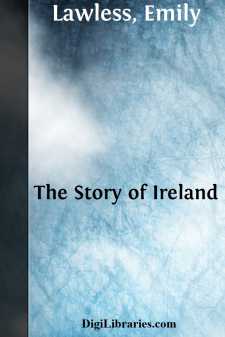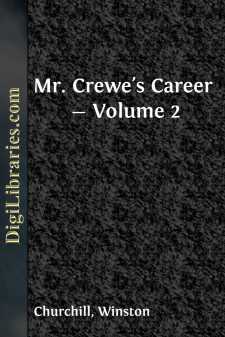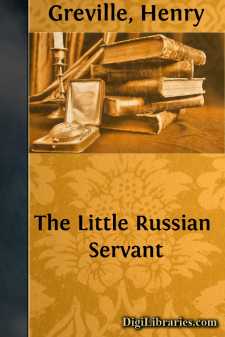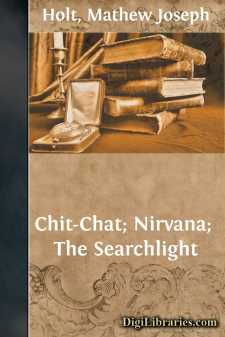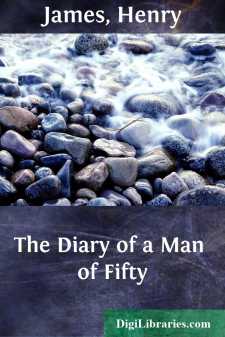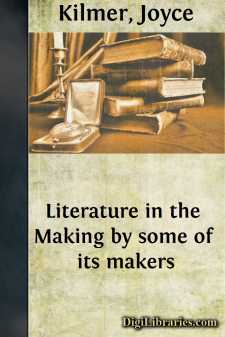Categories
- Antiques & Collectibles 13
- Architecture 36
- Art 48
- Bibles 22
- Biography & Autobiography 813
- Body, Mind & Spirit 142
- Business & Economics 28
- Children's Books 15
- Children's Fiction 12
- Computers 4
- Cooking 94
- Crafts & Hobbies 4
- Drama 346
- Education 46
- Family & Relationships 57
- Fiction 11829
- Games 19
- Gardening 17
- Health & Fitness 34
- History 1377
- House & Home 1
- Humor 147
- Juvenile Fiction 1873
- Juvenile Nonfiction 202
- Language Arts & Disciplines 88
- Law 16
- Literary Collections 686
- Literary Criticism 179
- Mathematics 13
- Medical 41
- Music 40
- Nature 179
- Non-Classifiable 1768
- Performing Arts 7
- Periodicals 1453
- Philosophy 64
- Photography 2
- Poetry 896
- Political Science 203
- Psychology 42
- Reference 154
- Religion 513
- Science 126
- Self-Help 84
- Social Science 81
- Sports & Recreation 34
- Study Aids 3
- Technology & Engineering 59
- Transportation 23
- Travel 463
- True Crime 29
Sort by:
by:
George Soan
THE PATRICIANS. It was in the year 1568, on the 17th of May, old style, that Althea, the widow of Netz of Bogendorf, sate in her apartments at Schweidnitz. The mourning veil still flowed about her pale beautiful face, while her blue eyes gazed through their tears with melancholy tenderness on the only pledge of a brief yet happy union, the four years' old Henry, who sate upon her knees, and in...
more...
by:
Emily Lawless
I. PRIMEVAL IRELAND. "It seems to be certain," says the Abbé McGeoghehan, "that Ireland continued uninhabited from the Creation to the Deluge." With this assurance to help us on our onward way I may venture to supplement it by saying that little is known about the first, or even about the second, third, and fourth succession of settlers in Ireland. At what precise period what is known...
more...
I Less than a hundred miles from the city of Gotham, across broad green fields, dotted into squares and oblong valleys by full-leafed maple, and elm, and mulberry, was the village of Brookfield. A hundred years of expansion in the surrounding land had acted inversely with the little hamlet, and had pinched it into a hermitical isolation. The Brookfieldians had discovered a huge beetle in the amber of...
more...
It is certainly not the function of a romance to relate, with the exactness of a House journal, the proceedings of a Legislature. Somebody has likened the state-house to pioneer Kentucky, a dark and bloody ground over which the battles of selfish interests ebbed and flowed,—no place for an innocent and unselfish bystander like Mr. Crewe, who desired only to make of his State an Utopia; whose measures...
more...
by:
Henry Greville
LITTLE RUSSIAN SERVANT. "Who's that?" said the countess, stopping in front of a young girl of fifteen or sixteen, bent over an embroidery frame. The young girl rose, prostrated herself thrice before her mistress, then, getting up, remained standing, her hands hanging by her side, her head slightly bent forward under the investigating gaze of the countess, who through her eyeglass closely...
more...
CHAPTER I. I thought to write a book entitled: "Yesterday, Today and Tomorrow." How much is buried in the wreckage of yesterday—how uninteresting today is and how little is to be done—our burden we shift to the strong, young shoulders of tomorrow; tomorrow of the big heart, who in kindness hides our sorrows and whispers only of hope. I ended by writing,—this—which I have called...
more...
by:
Jean Ingelow
ROSAMUND. His blew His winds, and they were scattered. 'One soweth and another reapeth.' Ay,Too true, too true. One soweth—unawareCometh a reaper stealthily while he dreams—Bindeth the golden sheaf, and in his bosomAs 't were between the dewfall and the dawnBears it away. Who other was to blame?Is it I? Is it...
more...
by:
Henry James
THE DIARY OF A MAN OF FIFTYby Henry James Florence, April 5th, 1874.—They told me I should find Italy greatly changed; and in seven-and-twenty years there is room for changes. But to me everything is so perfectly the same that I seem to be living my youth over again; all the forgotten impressions of that enchanting time come back to me. At the moment they were powerful enough; but they afterwards...
more...
by:
Joyce Kilmer
INTRODUCTION This book is an effort to bridge the gulf between literary theory and literary practice. In these days of specialization it is more than ever true that the man who lectures and writes about the craft of writing seldom has the time or the inclination to show, by actual work, that he can apply his principles. On the other hand, the successful novelist, poet, or playwright devotes himself to...
more...
TO AN IMPARTIAL WORLD. No. I. The unconstitutional oppression long and unremittingly practised upon the colonists of Texas, having at length become insupportable, and having impelled them to take up arms in defence of their rights and liberties, it is due to the world that their motives, conduct and causes of complaint should be fully made known. In order to do this it will be necessary to explain the...
more...



